AKA: Great Hero from China
Director: Lee Chiu
Cast: Chin Kar Lok, Lam Ching Ying, Jacqueline Ng, Suen Kwok Ming, Kwan Hoi San, Chan Siu Pang
Running Time: 93 min.
By Paul Bramhall
The name of Chin Kar Lok should be one that needs no introduction to anyone who considers themselves a fan of Hong Kong action cinema. The current president of the Hong Kong Stuntman Association and respected action director, back in the golden era of HK action cinema that was the 1980’s, Kar Lok was one the most fearless stuntmen working in the industry. As a member of Sammo Hung’s Stuntman Association, chances are if you were watching a Jackie or Sammo movie and saw a thug go crashing out of a third floor window / get mowed down by a speeding car / take a painful looking fall on the receiving end of a kick or punch, it would be Kar Lok.
As well as the stunt work, his physical dexterity saw him doubling for moves that even someone like Jackie Chan couldn’t pull off. In Dragons Forever, both the head over heels kick performed on the steps of the boat, and the finishing 360 helicopter kick to Benny ‘The Jet’ Urquidez are performed by Kar Lok, a fact that once known becomes blatantly apparent upon watching. So understandably, by the beginning of the 90’s, while Kar Lok’s older brother Chin Siu Ho was already an established leading man in the kung fu movie world, the decision was made to also thrust the younger Chin sibling into starring status.
Kar Lok’s most well remembered leading role remains as the hero in Operation Scorpio, were he famously took on Korean super kicker Won Jin using the unorthodox method of eel kung fu. Outside of Operation Scorpio though, he must also be the only actor to have played three legendary characters in the space of 4 short years – in 1991 he assumed the mantle of Wisely in Bury Me High, then a year later he stepped into the shoes of Wong Fei Hung in Martial Arts Master Wong Fei Hung, before donning the mask of Kato in 1994’s The Green Hornet. Out of the three productions, I always found his take on Wong Fei Hung to be the most curious.
Released the same year as Once Upon a Time in China II, whoever made the decision to go up against Jet Li’s take on the historical figure most likely never worked again. That’s not to say that Martial Arts Master Wong Fei Hung doesn’t come with its own pedigree of talent. Once Upon a Time in China II may have had Donnie Yen as the villain (all be it before Donnie Yen became ‘Donnie Yen!’), but Kar Lok had a foe in the form of kung fu cinema legend Lam Ching Ying. Made just a couple of years before his untimely death, Ching Ying was well known for wanting to get away from the Mr. Vampire styled Taoist priest roles that he’d found himself typecast in, since taking the lead in the 1985 seminal classic.
Here he plays a wandering Japanese samurai, who’s only wish is to take on the most famous Chinese martial artists in order to prove that he’s the best. Indeed in many ways his character is reminiscent of Frankie Chan’s role in The Prodigal Son, however his musings feel straight out of a Chor Yuen directed Shaw Brothers wuxia, as he dwells on how it’s lonely at the top, and that whoever eventually beats him will be destined to the same loneliness. Deep stuff, however beyond his words he’s very much a 2-dimensional antagonist, one who arrives on the scene via landing on top of a flying coffin and announcing that he wants to challenge Fei Hung’s father. If nothing else, it’s certainly an arrival that serves as a reminder that we’re watching an early 90’s new wave movie.
The pairing of Kar Lok and Ching Ying must have worked well together, as it would be Ching Ying who’d step into the director’s chair for The Green Hornet, giving the lead role to Kar Lok. Beyond having two of the most physically gifted martial artists in the same movie though, much of Martial Arts Master Wong Fei Hung falls flat. It would be easy to blame it on the patchy storyline, one that fails to really build any significant threat or serious villain to propel it forward. There are times when you can almost imagine director Lee Chiu, the man behind such old school efforts as Crippled Kung Fu Boxer and Kung Fu from Beyond the Grave, trying to figure out which way to take the plot.
A perfect example is the fact that Ching Ying actually turns out to be an honourable opponent, however when he first bursts onto the screen he ends up driving a spear through one of Fei Hung’s classmates chest, sending him to his death. It’s a scene which screams your usual Japanese villain, however it turns out that the killing is literally only there as a plot device, so that Fei Hung has an excuse to fight him in the finale. Despite these strained moments, Kar Lok’s budding relationship with Ching Ying’s sister, played by Ng Suet Man, is charming enough, and pre-dates the same Chinese-Japanese romantic relationship theme that would be used in Fist of Legend by a couple of years.
As I mentioned, it would be easy to blame the movie falling short of being a complete success on the ropey storytelling, however that’s really only half the story. The other half is Kar Lok himself. From the mid-90’s his lack of leading roles becomes glaringly conspicuous, as he fell back into supporting parts and TV work, and the reason why becomes immediately apparent whenever watching one of his movies. He has amazing physical talents, but what he doesn’t have is any real charisma or screen presence. The truth is that, whenever he’s onscreen for more than a couple of minutes with no action to perform, things get boring and dull very fast. The same spark that he has whenever his fist or feet are called into action, just wasn’t there when it came to acting, which is essential if you want to carry a whole movie on your shoulders.
Martial Arts Master Wong Fei Hung suffers from this issue like his other movies do, and it’s perhaps telling that for some scenes he disappears all together, instead having the focus turned to inconsequential supporting characters, ones that at least have some energy and character to them. That being said though, the moment Kar Lok does spring into action, your eyes are immediately glued to the screen. The fight choreography here was done by Lau Kar Leung regular Hsaio Hou, and Deadful Melody director Ng Min Kan. Expectedly, the pairing results in a perfect combination of old school meets new wave action. There’s occasional use of wirework, both for jumps and power hits, sending the recipients flying into breakable walls and tables with a satisfying level of impact. However there’s also plenty of grounded action, featuring some fantastic kicking and hand to hand exchanges, thanks not only to Kar Lok, but also the likes of co-stars Suen Kwok Ming and Kong Miu Deng.
While Kar Lok gets to let loose on several occasions during the runtime, I was left with the impression that Ching Ying was somewhat underused. He does get a few fight scenes, however his role as a samurai has all of his fights being performed katana in hand, so we never get to see any of that blistering Wing Chun handwork that was witnessed in the likes of The Prodigal Son. His fights also rely on wirework more than others, and I was unable to decide if the reason why his character is wearing a wide straw hat is because he was being doubled in some shots. That being said, if you can put aside your memory of knowing what Ching Ying is capable of, his character is still an entertaining one, and fans of new wave action will definitely have little to complain about.
The promise of a Chin Kar Lok versus Lam Ching Ying match-up in a period kung-fu movie is of course the reason most fans will be checking out Martial Arts Master Wong Fei Hung, and the said match-up is indeed delivered. It pits an umbrella wielding Kar Lok against Ching Ying armed with a katana, in the confines of a relatively cramped barn (most likely inspired by the Jet Li versus Yen Shi Kwan fight in Once Upon a Time in China, only minus the ladders), and again the choreography goes for a mix of both grounded exchanges and high flying clashes. Surprisingly, the most effective part of the fight is the music. We learn earlier on that Ching Ying trains to the rhythm of his sisters flute playing, and in the finale, as she’s left to watch on as her potential suitor and brother battle each other, she begins to play a melancholy tune. The intensity of the choreography, set to the sombre flute playing, elevated the scene to carry a certain level of feeling and emotion, despite it being admittedly undeserved.
All things considered, Martial Arts Master Wong Fei Hung is a difficult movie to rate. It has plenty of kung fu action, and it’s of a high quality, but it may not be the type of kung fu action audiences are expecting, and in a way that kind of summarises the whole movie. It delivers on what you’re expecting, most likely it just doesn’t deliver how you were expecting it. For those willing to look past Chin Kar Lok’s flat performance, and an occasionally nonsensical plot, then it could well be worth a look, but one thing it definitely isn’t, is Once Upon a Time in China II.
Paul Bramhall’s Rating: 5.5/10
Notes: (i) It’s probably a fair warning to mention that for those who don’t enjoy animal cruelty, the final fight in the barn involves a couple of pigeons being caught in the crossfire of Lam Ching Ying’s blade, although it’s nothing on the scale of the chickens in the finale of Outlaw Brothers.
(ii) I watched the Dragon DVD version of the movie, a sub-label of the now defunct UK based Soulblade distributors, and on the DVD cover it states ‘A FILM BY JANG LEE HWANG’. As in Hwang Jang Lee – so just to confirm – everyone’s favorite Korean boot master had nothing to do with Martial Arts Master Wong Fei Hung.


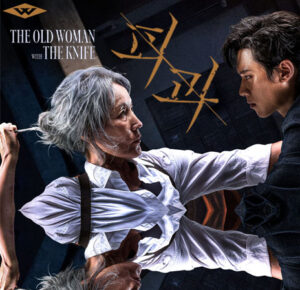
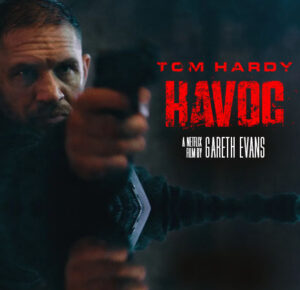
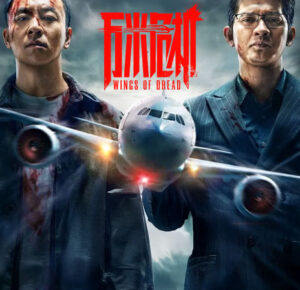
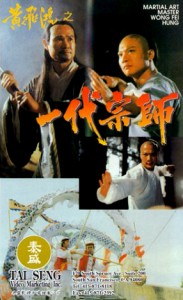
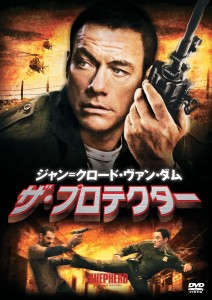
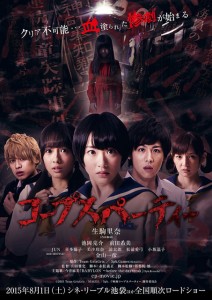
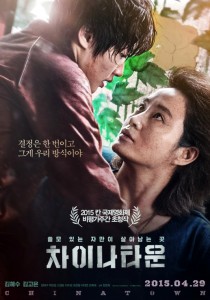
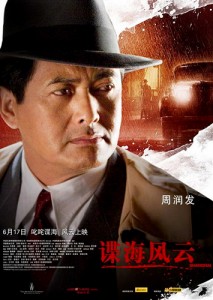

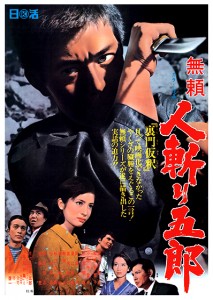
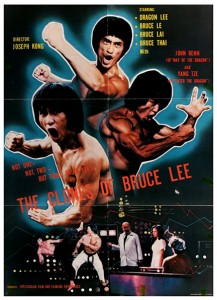
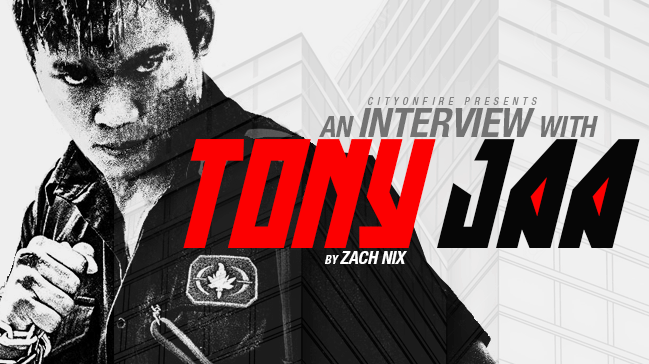 I recently had the pleasure to conduct an interview with Tony Jaa (
I recently had the pleasure to conduct an interview with Tony Jaa (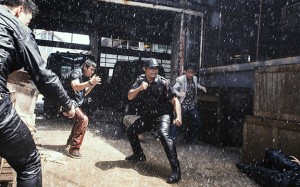
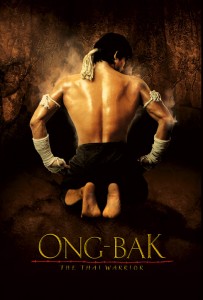


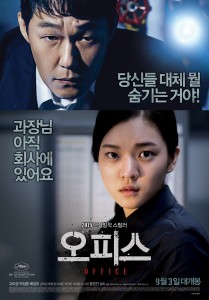
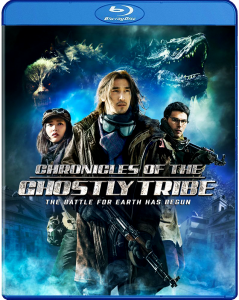
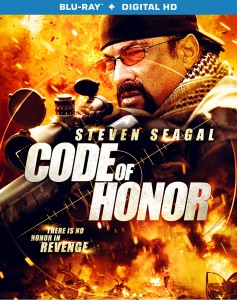
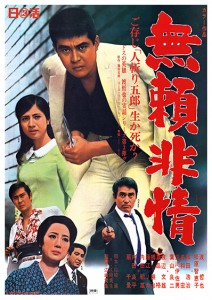
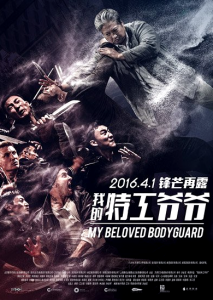
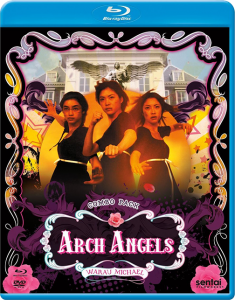


3 Comments